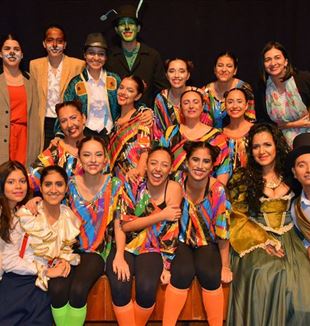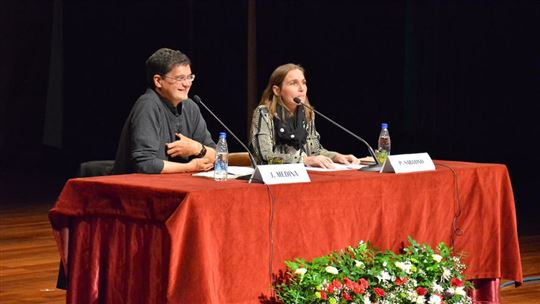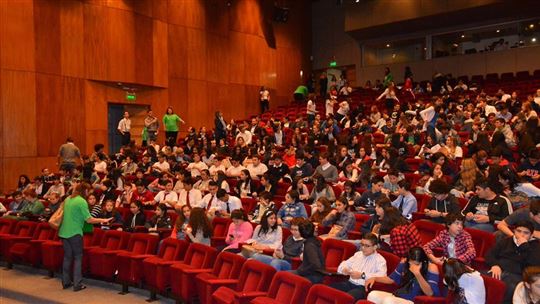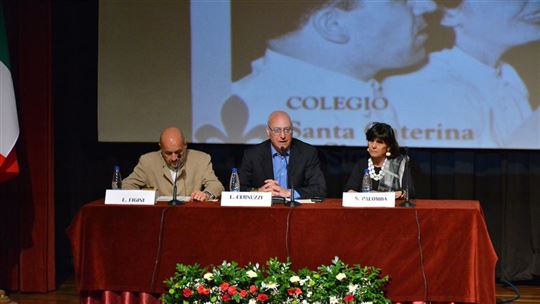
Paraguay: Learning to live in a changing country
Three days of lessons in Asunción for a conference on education open to students, parents, and educators. The conference saw constant dialogue on the meaning of education and the roles of school and family.On May 10-12, the “Education Before a Changing Country” conference took place in Asunción. The idea behind the conference came about after some years of work at our Saint Catherine of Siena private school in Asunción, which was born in 2005 with only 50 enrolled students and now hosts 500 kids ranging from elementary school to high school. We wanted to verify whether our fears and doubts, as well as our certainties, were the same ones our colleagues and parents from other schools experienced.
Paraguay is economically growing at an exponential rate but, in spite of this growth, it still lacks a strong educational base. Although the country embraced democracy after years of dictatorship, to cite Karl Kraus, “Freedom of thought we have. Now we just need some thoughts.” So, the idea was to reflect on the meaning of today’s education from both the educators’ and the parents’ perspectives, seeking and creating a community within the school system. That is, making the school a place of encounter where we, first and foremost, educate and are educated to live, and consequently acquire that human and spiritual value that makes up the treasure each one of us carries within to challenge the world.
From the start, we wanted many people to collaborate in the conference. For this reason, we looked for speakers that would be able to communicate their educational experiences with simple yet piercing language. This is exactly how Fr. José Medina (responsible of CL in the United States and former high school teacher and principal) and Cometa’s Erasmo and Serena Figini executed their talks. Their words and thoughts were filled with disarming strength and beauty. 
The first day of the conference was dedicated to educators; There were over 200 teachers in the Banco Centrale conference room. The day’s starting point was a quote attributed to Pier Paolo Pasolini: “Only he who can love can teach.” Medina centered his reflection around a new educational pathway: that of the heart. Young people, though apparently fragile, thirst for answers that will bring their person to fulfillment. “We prepare young people for great horizons. If we can’t teach kids to dream, we have severed our ties to education. Educating means teaching to wait for a moment that will capture the heart, waiting for someone, something that will love you, surprise you, strike you, and move you to change your life. All educational techniques are at our disposal to teach kids to dream, but this is only possible if we have a teacher who teaches us to beg for a moment of freedom to change our lives.”
Another interesting point made by Medina was his invitation for teachers not to educate their students to a passive or a forced obedience, but to freedom as the capacity to recognize and find something worth living for. Only those who are truly happy and free can make their country a better place. The roundtable that followed featured interactions between academic professionals in close contact with young people. The most crucial aspect that emerged from the conversation was the importance to educate people who should not only be filled with technical skills, but with human values that may strengthen moral and ethical integrity. So, the push is to return to the kind of school that “humanizes” people. On the way out, Literature teacher Diana said to a colleague, “I didn’t think my job could be an act of charity for society.”
The second day was dedicated to students. Five hundred kids from public and private schools attended Medina’s lesson titled “In School to Learn to Live.” “I was struck when he said we should ‘burn the ships,’ meaning we should risk everything for what we see is true in our lives,” said fourteen-year-old Cecilia. Paola, who is the same age, used to find mistakes to be paralyzing. “I am always scared to make mistakes. When I heard that phrase, I understood that taking risks is necessary, without worrying about the results.” “We shouldn’t just be learning history, math, and all these other subjects, but we should learn how to use our heart. Because if our teachers point us to the wrong track, we can see the error with our heart,” said Pablo. The greatest surprise was seeing and perceiving the thirst in these kids’ questions, all of them pertaining to important themes such as love, country, freedom, school, the future … that is life.
This young human potential found a response in the enthusiasm with which the students attended The Adventures of Pinocchio, a theatrical performance inspired by Franco Nembrini’s reading of Collodi’s book by the same title. 
However, everything is only retainable if we learn to teach young people to use their heart as a compass to help them seek and recognize what’s good. “To educate, then, means to love life to the very end,” began Erasmo Figini as he opened the third day dedicated to parents. The founder of Cometa pointed out that he is neither a psychologist nor a sociologist capable of providing winning educational formulas. Education, though, can only be fulfilled by giving meaning to our lives because education is not just a word, it’s an experience where even rules have some value if they reflect a life lived to the fullest. Erasmo and Serena brought a great witness to Paraguay, communicating that parenthood is not just a matter of procreation, but of gratuity. “Offspring are ‘guests’ in the sacred sense of the word. They are a gift, not a possession.” Through their very concrete stories, they emphasized the pressing task of today’s education: creating unity between school and family to help kids find their passions and understand whether their hunch that life is worth living is actually true. This is only possible if young people find a companionship able to help them experience life this way.
The most telling sign that these three days were a meaningful experience for everyone was the joy we all experienced due to a contagious desire to do and live fully. Fatigue slid off us immediately, and we were once again ready to be struck by tomorrow.